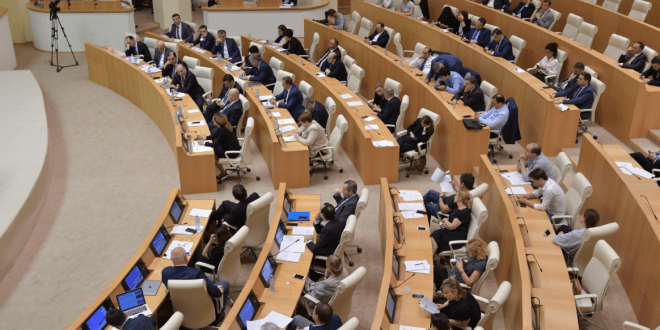
PM-Designate, Ministerial Candidates Speak of Priorities, Structural Reforms
Prime Minister-designate Mamuka Bakhtadze and ministerial candidates presented yesterday their new program priorities at hearings of parliamentary committees and political groups.
PM-designate Bakhtadze exposed his vision of the country’s development, including institutional reforms, entrepreneurship, green economy, education, and poverty reduction.
Bakhtadze touched upon the concept of small government, saying the country “needs it not because this is conceptually attractive, but because it will help increase the effectiveness of reforms and state institutions.”
“We need the [economic] reforms that will help us defeat Georgia’s major economic challenge – poverty,” he stressed in his remarks.
The PM-designate pledged to curb “unfair rules” in the economy. “I think the current economic model includes unfair rules of game, which has hampered poverty reduction and prevented our economy from developing further,” he said.
Here, the PM-designate stressed that his government would write off all tax debts accumulated before January 1, 2013 from entrepreneurs, who have not carried out any activities since then (approximately 36 000).
Bakhtadze spoke on other policy initiatives as well, including allowing non-residents to register companies without being physically present in Georgia, and easing tax regulations for large transnational companies.
The parliamentary opposition slammed Bakhtadze’s cabinet, inquiring into his positions on economy, institutional reforms and high-profile criminal justice cases. Justice Minister-designate, Tea Tsulukiani, was particularly criticized.
Georgia’s Finance Minister since November 2017, Bakhtadze, was tapped to be the country’s new head of government after PM Giorgi Kvirikashvili stepped down amid public protests, as well as apparent “differences of opinion” with the ruling party leadership.
As part of his reform plan, the PM-designate plans to reduce the number of ministries from fourteen to eleven, but since structural changes in the cabinet require a separate legislative amendments process, the cabinet will first go through the confidence vote in its current arrangement (with acting ministers), and will then be presented to the Parliament in new composition, tentatively in three-weeks-time.
Two ministers – of economy (Dimitri Kumsishvili) and foreign (Mikheil Janelidze) – have already left their posts and will be replaced by their deputies until final cabinet composition is submitted to the legislature.
Bakhtadze’s cabinet will face parliament’s confidence vote today, requiring the support of at least 76 MPs.
This post is also available in: ქართული Русский